|
Weekly Parashah |
|||||
| Torah: Lev. 14:1-15:33 | Haftara: 2 kings 7:3-20 | Brith Chadashah: Mt 8:1-17 Mk 1:35-45 |
|||
| Metzora (Leper) |
|||||
Scripture: |
Leviticus 14:1 - 15:33
|
Torah |
|||
|
|
14 Then Adonai spoke to Moses, saying: 2 “This is the Torah of the one with tza’arat in the day of his cleansing. He should be brought to the kohen, [a] 3 and the kohen is to go to the outside of the camp. The kohen is to examine him, and behold, if the mark of tza’arat is healed in one with tza’arat, 4 then the kohen is to command that two clean living birds, cedar wood, scarlet and hyssop be brought for the one being cleansed. 5 The kohen should command them to kill one of the birds in a clay pot over living water. 6 As for the living bird, he is to take it, the cedar wood, the scarlet and the hyssop, and dip them with the living bird into the blood of the bird that was killed over the living water. 7 He is to sprinkle on the one being cleansed from the tza’arat seven times and pronounce him clean, then release the living bird over the open field. 8 “The one to be cleansed must wash his clothes, shave off all his hair, and bathe himself in water. Then he should be clean. After that he may come into the camp, but is to dwell outside his tent for seven days. 9 Then on the seventh day, he is to shave all his hair from his head, his beard, and his eyebrows—he must shave off all his hair. He is to wash his clothes, and bathe his body in water. Then he will be clean. https://www.biblegateway.com/passage/?search=Lev.+14%3A1-15%3A33&version=TLV |
||||
Scripture: |
2 Kings 7:3-20
|
Haftarah |
|||
|
3 Now there were four men with tza’arat at the entrance of the gate; and they said to one another, “Why should we sit here till we die? 4 If we say: ‘Let’s go into the city,’ then the famine is in the city, so we will die there; but if we sit still here, we’ll die also. So come, let’s go into the camp of the Arameans. If they spare us, we’ll live; and if they kill us, we’ll just die.” 5 So they got up at twilight to go to the camp of the Arameans. But when they arrived at the edge of the Aramean camp, behold, no one was there! 6 For Adonai had caused the army of the Arameans to hear a noise of chariots and a noise of horses—indeed a noise of a huge army. So they said one to another, “Look, the king of Israel has hired against us the kings of the Hittites, and the kings of the Egyptians to assault us.” 7 So they got up and fled at twilight, abandoning their tents, their horses and their donkeys—the entire camp just as it was—and fled for their lives. 8 When these men with tza’arat came to the edge of the camp, they entered into one tent, ate and drank, and took from there silver, gold, and clothes, then went and hid them. Then they returned and went into another tent, and took from there too, and went and hid them. 9 Then they said to each other, “It’s not right, what we’re doing. This day is a day of good news, and we’re keeping silent! If we wait till the morning light, punishment will overtake us. Let’s go now and report to the king’s household.” 10 So they came and called out to the city gatekeepers, and told them, “We went to the camp of the Arameans, and look, there was not a single soul there, no human voice—just the horses and the donkeys tied up, and the tents just as they were.” 11 Then the gatekeepers called out, and it was reported to the royal palace inside. 12 When the king got up in the night, he said to his courtiers, “Let me tell you now what the Arameans have contrived against us. They know that we are hungry, so they went out of the camp to hide themselves in the field, thinking, ‘When they come out of the city, we’ll capture them alive and get into the city.’” https://www.biblegateway.com/passage/?search=2+kings+7%3A3-20&version=TLV |
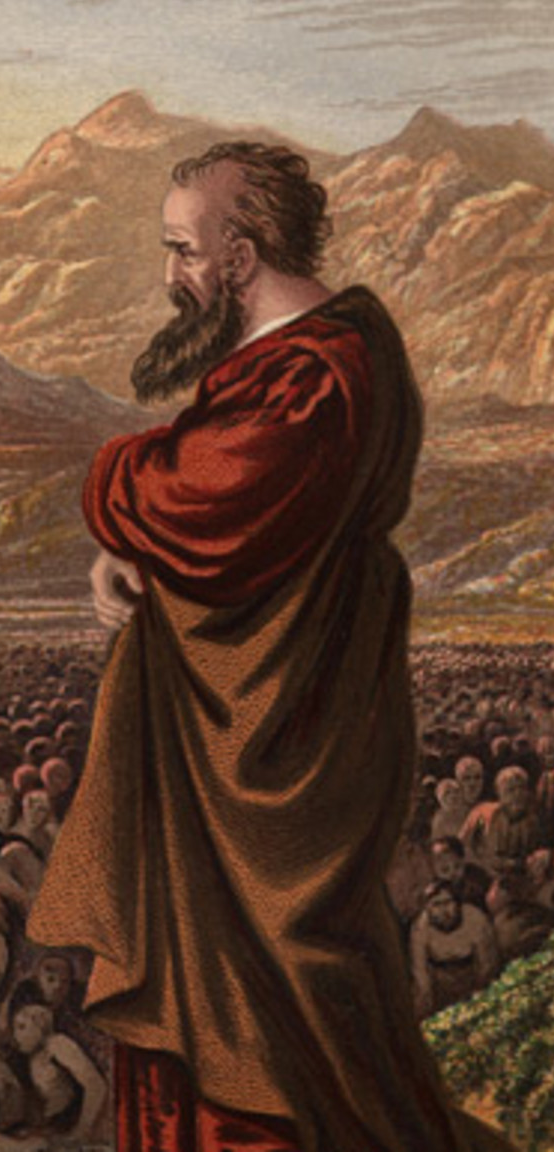 |
||||
Scripture: |
Matthew 8:1-17
|
Brit Chadashah |
|||
|
|
Healing Those who Trust8 When He came down from the mountain, large crowds followed Him. 2 And a man with tzara’at came to Him and bowed down before Him, saying, “Master, if You are willing, You can make me clean.” 3 Yeshua stretched out His hand and touched him, saying, “I am willing. Be cleansed.” Immediately his tzara’at was cleansed. 4 And Yeshua said to him, “See that you tell no one; but go show yourself to the kohen and offer the gift that Moses commanded, as a testimony to them.”[a] 5 Now when Yeshua came into Capernaum, a centurion came begging for help. 6 “Master,” he said, “my servant is lying at home paralyzed, horribly tormented.” 7 Yeshua said to him, “I’ll come and heal him.” 8 But the centurion said, “Master, I’m not worthy to have You come under my roof. But just say the word and my servant will be healed. 9 For I also am a man under authority, with soldiers under me. I say to this one, ‘Go!’ and he goes; and to another, ‘Come!’ and he comes; and to my servant, ‘Do this!’ and he does it.” 10 Now when Yeshua heard this, He marveled and said to those who were following, “Amen, I tell you, I have not found anyone in Israel with such great faith! https://www.biblegateway.com/passage/?search=Mt+8%3A1-17&version=TLV
Mark 1 : 35 – 4535 Very early, while it was still night, Yeshua got up, left, and went away to a place in the wilderness; and there He was praying. 36 Then Simon and those with him hunted for Yeshua. 37 And when they found Him, they said to Him, “Everybody’s looking for You.” 38 He said to them, “Let’s go somewhere else, to the neighboring towns, so that I may proclaim the message there also—this is what I came for.” 39 And He went throughout all the Galilee, proclaiming the message in their synagogues and driving out demons. 40 A man with tzara’at comes to Him, begging Him and falling on his knees, saying, “If You are willing, You can make me clean.” 41 Moved with compassion, Yeshua stretched out His hand and touched him. He said, “I am willing. Be cleansed.” 42 Immediately, the tzara’at left him, and he was cleansed. 43 Yeshua sent him away at once, sternly warning him. 44 He said to him, “See that you say nothing to anyone, but go show yourself to the kohen.[a] Then, for your cleansing, offer what Moses commanded, as a testimony to them.” 45 But he went out and began to proclaim and spread the word, so much that Yeshua could no longer enter a town openly but had to stay out in wilderness areas. Still, they kept on coming to Him from everywhere. https://www.biblegateway.com/passage/?search=Mk+1%3A35-45&version=TLV |
||||
Parashah in 60 seconds |
|||||
29 Post Modern Secular Humanism
Post Modern Secular Humanism
After many messages on this topic I feel that it is time to post the following information as a statement on the doctrine I adhere to refuting the abomination of Post Modern Secular Humanism, but to understand what I'm saying we first need to lay out the base of this doctrine.
Michael Patton wrote a great article on Post Modernism from which I present you an abstract for our understanding.
Hard Post Modernism
When dealing with the issues one has to distinguish between what we might call “hard postmodernism”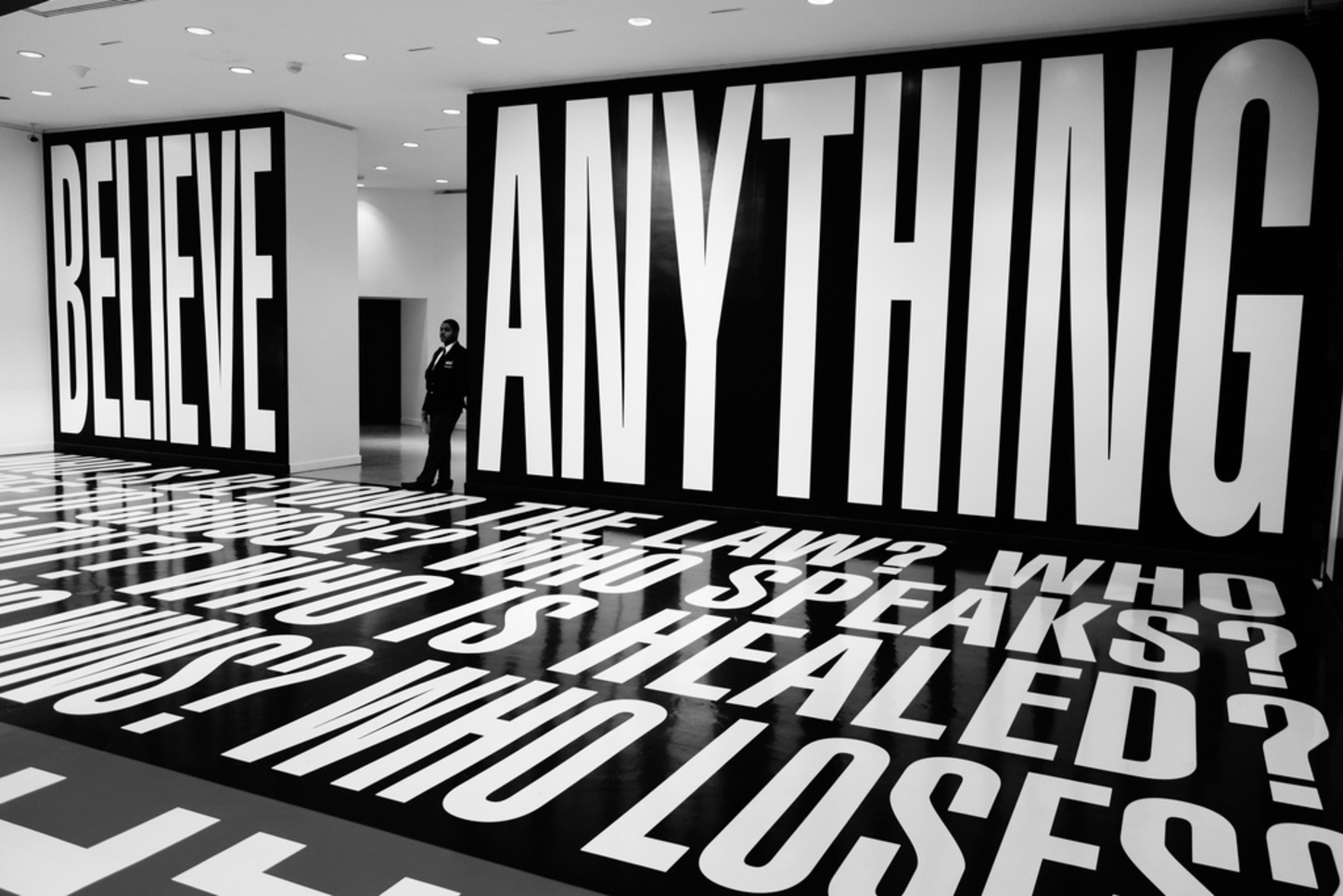 and “soft postmodernism.” Hard postmodernism might be defined as those who have had a philosophical shift with regards to the nature of truth. The key phrase here is “nature of truth.” Hard postmodernists would see truth as being relative to the time, culture, or situation of the individual. In other words, truth does not exist beyond the thoughts of the subject. For example (and let me dive right in!), homosexuality, to the hard postmodernist, is right or wrong depending upon the person’s situation. The “wrongness” of homosexuality presented in both the Old and the New Testaments is only wrong because of the primitive understanding of the time and culture in which the dictates were given. But today it is not wrong since we have a “greater understanding” of the physiology of sexual orientation. Therefore, the morality of a persons sexual orientation is not defined by some so-called “eternal principle” to which all people of all times must adhere, but by the situation in which the person finds themselves. Hard postmodernism, then, is defined by its denial of the concept of the correspondence view of truth—that truth is that which corresponds to objective reality. The reason for this denial is that, to the hard postmodernist, there is not an objective reality. It is an absolute denial of all eternal principles that might come from an eternal Creator. This would include ideas such as who and what God is. Any definition or belief in God, to the hard postmodernist, is purely a subjective endeavor. We can believe in God if it helps us, but that does not mean He actually exists outside of our own relative experience. Hard postmodernism is a logical outcome of atheism or pantheism. Since both atheism and pantheism deny the existence of an eternal personal God, then there is no reason to believe in eternal truth that is mediated through the dictates of a personal agency. This type of postmodernism is explicitly evidenced in our culture in many higher education institutions, whose philosophy is clearly articulated in such a way.
and “soft postmodernism.” Hard postmodernism might be defined as those who have had a philosophical shift with regards to the nature of truth. The key phrase here is “nature of truth.” Hard postmodernists would see truth as being relative to the time, culture, or situation of the individual. In other words, truth does not exist beyond the thoughts of the subject. For example (and let me dive right in!), homosexuality, to the hard postmodernist, is right or wrong depending upon the person’s situation. The “wrongness” of homosexuality presented in both the Old and the New Testaments is only wrong because of the primitive understanding of the time and culture in which the dictates were given. But today it is not wrong since we have a “greater understanding” of the physiology of sexual orientation. Therefore, the morality of a persons sexual orientation is not defined by some so-called “eternal principle” to which all people of all times must adhere, but by the situation in which the person finds themselves. Hard postmodernism, then, is defined by its denial of the concept of the correspondence view of truth—that truth is that which corresponds to objective reality. The reason for this denial is that, to the hard postmodernist, there is not an objective reality. It is an absolute denial of all eternal principles that might come from an eternal Creator. This would include ideas such as who and what God is. Any definition or belief in God, to the hard postmodernist, is purely a subjective endeavor. We can believe in God if it helps us, but that does not mean He actually exists outside of our own relative experience. Hard postmodernism is a logical outcome of atheism or pantheism. Since both atheism and pantheism deny the existence of an eternal personal God, then there is no reason to believe in eternal truth that is mediated through the dictates of a personal agency. This type of postmodernism is explicitly evidenced in our culture in many higher education institutions, whose philosophy is clearly articulated in such a way.
Michael Patton : Understanding the Postmodern Mind and the Emerging Church
Christianity has as its foundation the atoning work of Jesus Christ’s death, burial, and resurrection that was brought about by the eternal counsel of an eternal triune God. This atonement was necessary because man had broken God’s eternal law. Now, if Christianity’s confession is that an eternal God has eternal precepts that time bound man has broken, then Christianity is about a belief in an eternal objective truth, not a "truth" based on your own subjective experience, and is decidedly not on the side of a hard postmodernist. In other words, to be Christian is to deny hard postmodernism and to be an advocate of hard postmodernism is to deny Christianity.
Michael continuous to explain on the Emerging church or what he calls the Soft Postmodern church
Soft Postmodernism, the emerging church
Soft postmodernists are different than hard postmodernists. In general they are suspicious of all truth claims. Their suspicion, however, is not rooted in a denial of the existence of truth, but a denial of our ability to come to terms with our certainty about the truth. In other words, the soft postmodernists believe in the existence of objective truth, but deny that we can have absolute certainly or assurance that we, in fact, have a corner on this truth. To the soft postmodernist, truth must be held in tension, understanding our limitations.
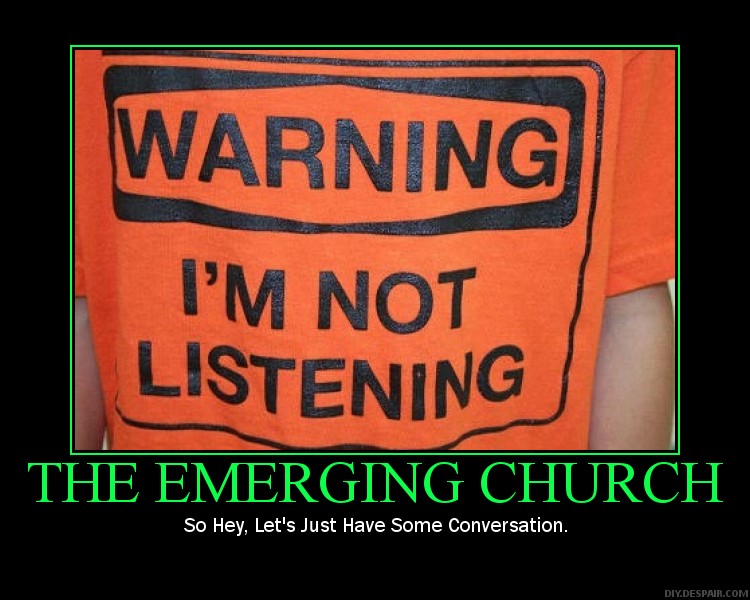 [snippet removed from the original text]
[snippet removed from the original text]
The emerging Church, for example, would believe in an eternal God who has laid down eternal precepts that time bound man has broken and therefore needs restoration through Christ. But attempting to define exactly who God is, what exactly He requires, how redemption is accomplished and applied is something that must be held in tension considering our own limitations. Interestingly, these limitations are the same limitations that the hard postmodern has lain down. People are limited in their understanding, being bound by their time, culture, and situation. The result is that, in the emerging Church, because of their soft postmodern tendencies, all distinctions are minimized or ignored.
[snippet removed from the original text]
According to the emerging Church, we don’t go to church to learn about God; we go to worship God. We don’t go so that we can better understand, articulate, and defend our faith; we go so that we can commune with fellow believers. Our goal is not to confirm our beliefs, but to deconstruct our "unfounded" beliefs so that we can truly worship God in mystery. Here is how the emerging Church might answer divisive questions of Christianity past and present:
- Question: Is justification by faith alone?
- Answer: Wrong question; Love Christ.
- Question: Is God eternal or time bound?
- Answer: We can’t comprehend such a question; Love Christ.
- Question: What about those who have never heard the Gospel?
- Answer: Don’t place God in a box. Love Christ.
- Question: Is the Scripture alone sufficient for our faith?
- Answer: Not relevant. Love Christ.
- Question: What is predestination?
- Answer: A mystery. Love Christ.
Then the next questions that arise are, what is atheism, pantheism, and humanism
Let's see what some of the sources tell us.
But before we go and look at this we need to pick up a hot potato that will provide even a clearer distinction on how people in these mind-sets think.
Dr. J. Rodman Williams who has been mentioned several times in this series on doctrine and who wrote the book "Renewal Theology" was asked several questions after lesson 10 in a series on renewal theology concerning "Eternal Life"
Question: I heard you say you believe in "the life everlasting." Just what do you mean by that? Do you believe that life goes on forever? Your life and my life?
Answer: Yes, we Christians do believe that life goes on forever, that physical death is not the end. We believe that those who assume that this life is all there is-the materialists, the humanists, the atheists, and so on-do not have a proper understanding of the nature of life. We believe that the yearning-present everywhere at all times-which people have for immortality has an answer beyond the grave. Indeed, we Christians do believe that life goes on forever in spite of the seeming end at physical death.
Question: But wait a moment. How can that be? The person disintegrates at death. The body dies, surely. The bones of people of many thousands of years are scattered over the earth. What kind of life everlasting are you talking about?
Answer: You fail to recognize that there is not only body, but there is also spirit, which is an immortal and indestructible part of man. Indeed it is his very deepest nature. I have a body but also I am a spirit: a spirit that expresses itself through my body with its various mental and emotional aspects. The body is the vehicle for the spirit and at death there is a separation of the mortal from the immortal. Hence just because the body is fragile and fades (indeed it dies daily; every hour you are one hour nearer to the end) has nothing to do with the spirit. God created man different from the rest of the animal world: He created him in His own image and likeness. This means many things, but for one thing it means that God has given to man something immortal. God made man that way.
Eternal Live J. Rodman Williams
Atheism
The dictionary describes atheism as
3. the rejection of God or gods.
Some Wikipedia points of view which I can relate to are;
The term atheism originated from the Greek ἄθεος (atheos), meaning "without god(s)", used as a pejorative term applied to those thought to reject the gods worshipped by the larger society. With the spread of free thought, skeptical inquiry, and subsequent increase in criticism of religion, application of the term narrowed in scope. The first individuals to identify themselves using the word "atheist" lived in the 18th century.
Arguments for atheism range from the philosophical to social and historical approaches. Rationales for not believing in any supernatural deity include the lack of empirical evidence, the problem of evil, the argument from inconsistent revelations, rejection of concepts which cannot be falsified, and the argument from nonbelievers. Although some atheists have adopted secular philosophies, there is no one ideology or set of behaviors to which all atheists adhere. Many atheists hold that atheism is a more parsimonious worldview than theism, and therefore the burden of proof lies not on the atheist to disprove the existence of God, but on the theist to provide a rationale for theism.
Wikipedia on atheism
Pantheism
So what's the difference between Atheism and Pantheism? As far as disbelief in supernatural beings, forces or realms, there is no difference. World Pantheism also shares the respect for evidence, science, and logic that's typical of atheism.
However, Pantheism goes further, and adds to atheism an embracing, positive and reverential feeling about our lives on planet Earth, our place in Nature and the wider Universe, and uses nature as our basis for dealing with stress, grief and bereavement. It's a form of spirituality that is totally compatible with science. Indeed, since science is our best way of exploring the Universe, respect for the scientific method and fascination with the discoveries of science are an integral part of World Pantheism.
pantheism.net
We can see so many times that Atheists and with that Pantheists declare that they do not adhere to any religion or faith and with that they are not part of any of this.
However in the explanation of Pantheism, from pantheism.net we can read that it is a form of spirituality.
It already shows the first of many contradictions.
Humanism
The following is an abstract from the Humanist Manifesto III explaining what humanism is truly all about.
Humanism is a progressive philosophy of life that, without supernaturalism, affirms our ability and responsibility to lead ethical lives of personal fulfillment that aspire to the greater good of humanity.
Knowledge of the world is derived by observation, experimentation, and rational analysis. Humanists find that science is the best method for determining this knowledge as well as for solving problems and developing beneficial technologies. We also recognize the value of new departures in thought, the arts, and inner experience—each subject to analysis by critical intelligence.
Humans are an integral part of nature, the result of unguided evolutionary change. Humanists 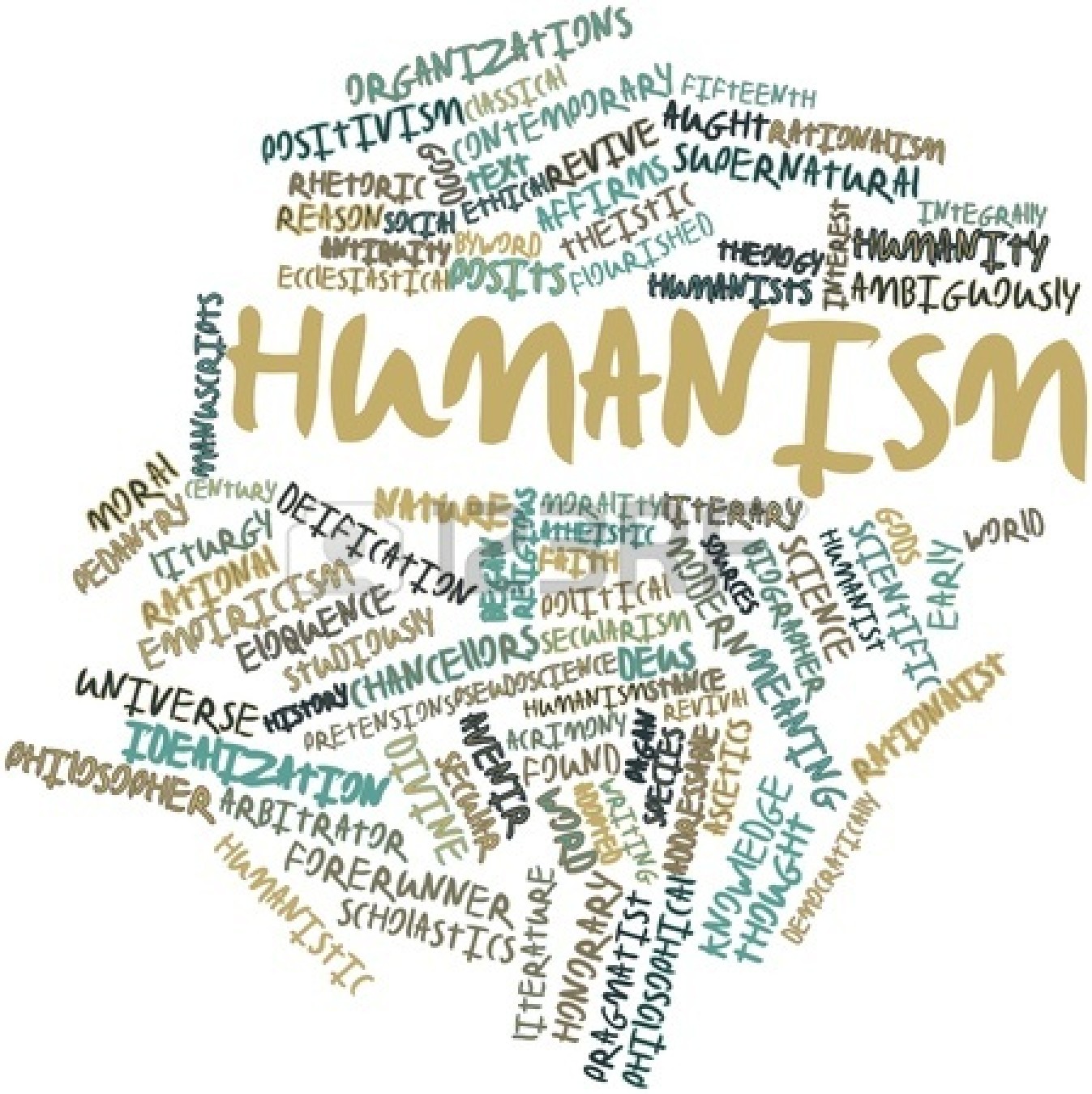 recognize nature as self-existing. We accept our life as all and enough, distinguishing things as they are from things as we might wish or imagine them to be. We welcome the challenges of the future, and are drawn to and undaunted by the yet to be known.
recognize nature as self-existing. We accept our life as all and enough, distinguishing things as they are from things as we might wish or imagine them to be. We welcome the challenges of the future, and are drawn to and undaunted by the yet to be known.
Ethical values are derived from human need and interest as tested by experience.
We are committed to treating each person as having inherent worth and dignity, and to making informed choices in a context of freedom consonant with responsibility.
Life's fulfillment emerges from individual participation in the service of humane ideals. We aim for our fullest possible development and animate our lives with a deep sense of purpose, finding wonder and awe in the joys and beauties of human existence, its challenges and tragedies, and even in the inevitability and finality of death.
Working to benefit society maximizes individual happiness. Progressive cultures have worked to free humanity from the brutalities of mere survival and to reduce suffering, improve society, and develop global community.Humanists are concerned for the well being of all, are committed to diversity, and respect those of differing yet humane views. We work to uphold the equal enjoyment of human rights and civil liberties in an open, secular society and maintain it is a civic duty to participate in the democratic process and a planetary duty to protect nature's integrity, diversity, and beauty in a secure, sustainable manner.
As we can read from the manifesto we see that the goal of humanism is progression of self and society. Globalism and oneness is adherent to happiness and that knowledge is gained from observation, experimentation and rational analysis throughout nature within the constraints of an unguided natural evolution.
Ethical values as being right or wrong are based on the human need and related to experience, which of course makes truth relative.
Fulfillment in live is depending on the participation of the enhancement of the greater good which is set to be a global goal. Which is then promoting a world in which all are equal and within the same mindset of humanism.
As within the last section it states; "Working to benefit society maximizes individual happiness".
Humanism is promoting a world of unity and equality, but has a focus on self and self fulfillment.
Secular Humanism
Secular Humanism is an attempt to function as a civilized society with the exclusion of God and His moral principles. During the last several decades, Humanists have been very successful in propagating their beliefs. Their primary approach is to target the youth through the public school system. Humanist Charles F. Potter writes,
"Education is thus a most powerful ally of humanism, and every American school is a school of humanism. What can a theistic Sunday school's meeting for an hour once a week and teaching only a fraction of the children do to stem the tide of the five-day program of humanistic teaching?"
Charles F. Potter, "Humanism: A New Religion," 1930
John J. Dunphy, in his award winning essay, The Humanist (1983), illustrates this strategic focus,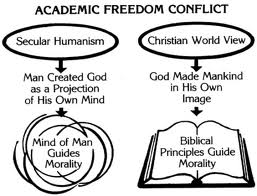
"The battle for humankind's future must be waged and won in the public school classroom by teachers who correctly perceive their role as the proselytizers of a new faith: A religion of humanity -- utilizing a classroom instead of a pulpit to carry humanist values into wherever they teach. The classroom must and will become an arena of conflict between the old and the new -- the rotting corpse of Christianity, together with its adjacent evils and misery, and the new faith of humanism."
John J. Dunphy, "The Humanist 1983"
Secular Humanism - Main Tool is Evolutionary Thought
Secular Humanism is manifested in Evolutionary Theory. To satisfy the fundamental question of "Where did we come from?" children are taught the doctrine of Evolution. The first plank of the Humanist Manifesto states: "Religious humanists regard the universe as self-existing and not created." The second plank states: "Humanism believes that man is a part of nature and that he has emerged as a result of a continuous process." Certainly, the public school system propagates the Humanist doctrine (clearly an atheistic "religion"), and thus, condemns the concept of God. This is an amazing irony. Creation Science has been successfully kept out of the public schools by organizations such as the American Civil Liberties Union (A.C.L.U.) on the grounds that Creation is religious, and the government should not support religion in any fashion. "In fact, evolution became in a sense a scientific religion; almost all scientists have accepted it, and many are prepared to 'bend' their observations to fit with it."
H. S. Lipson, FRS, Professor of Physics, University of Manchester, UK,
"A Physicist Looks at Evolution", Physics Bulletin, vol. 31, May 1980, pg. 138
Post Modern Secular Humanism
When, then at this moment we arrive at the combination of these two philosophies being combined in the plague that has been and is attacking the church.
When we take the thought of the emerging church and apply this within the mindset and history of modern day humanism we see how countries like America under the flag of Political Correctness, the Separation of church and state, and the Separation not of but from religion has adopted this as a new STATE SPONSORED Religion.
- The state dollars used to remove anything that has to do with God out of the public square.
- The removal of memorial crosses from alongside the highways and byways.
- The attacks from Atheist organizations to remove the phrase "one nation under God" from our currency.
- The removal of ten commandment statutes and plaques from the public square.
- The removal of the mentioning of the words Christmas and Manger from anything public and / or government related. (it might offend some-one)
- The promotion of minority religions in the name of equality.
- The denial of the Judeo Christian origin of our country.
Within just seven out of so many, many different points we can make it shows us so well the influences of the relative truths and adjustable doctrines of Post Modernism together with the promotion of the humanistic line of thought.
The political correctness thought that is pushing this forward needs to be funded in one way or another.
Because these things are being promoted by rules of law, and departmental guidelines for internal and external communications this is then directly, and indirectly funded by our own tax dollars.
With the tax and budget funding of these thoughts, it is state promoted and with that it is an accepted philosophy or should we say religion within our government.
Because these thoughts are being promoted through public channels they are with that thought in our public schools.
While thought in our public schools and especially our institutions of higher education and thinking it has become a form of indoctrination with young people failing the classes when they are in disagreement.
When you are in disagreement, you do not understand the material presented, thus you fail, delivering into society a new group of people that have been tought that it might be true for you, but not necessarily for me.
It is all OK, as long as we further the group and with that the global interest.
God is Truth and Truth is Absolute
Dr. Williams writes in the chapter on God in section 1 of Renewal Theology.
God as the God of truth is, in the second place, the God of complete integrity. Because He is the very fountain of truth, there can be in Him nothing of untruth. He is true in His being, actions and words; there is absolutely no deception or falsehood.
What is disclosed in His general revelation is truth (the Holy Bible), however much people suppress it. Further, what He sets forth in His special revelation through His word is true: "The word of the Lord is true" (Ps. 141:6). God does nothing that is false; a lie is impossible to His nature. "God is not man, that he should lie" (Num. 23:19); again, "Let God be true though every man be false [literally, "a liar"]" (Rom. 3:4).
With God there is no dissimulation, no shading of the truth, no understatement or overstatement; in everything there is integrity.
God is truth and with that His word is truth, as God does nothing that is false; a lie is impossible to His nature.
Which then makes truth, God and His word, ABSOLUTE.
In Closing; Presenting the plague to the church
Post Modern Secular Humanism is the plague attacking the church, not just in our days, but it have been attacking the church throughout the beginning of the church age.
 Unfortunately, in our current society and times we see this plague rampage without any holding back.
Unfortunately, in our current society and times we see this plague rampage without any holding back.
A plague is being defined as;
Plague is a deadly infectious disease. Depending on lung infection, or sanitary conditions, plague can be spread in the air, by direct contact, or by contaminated undercooked food or materials.
As our new State Controlled and Supported religion Post Modern Secular Humanism is a plague.
As the lungs are the place where our breath (ruach, spirit) comes from which forms the words (our thoughts, beliefs and convictions). It is not far fetched to see how a false doctrine will be spread by the infectuous breath forming the words in our lungs.
The way we are infected is depending on the sanitary conditions of our environment.
Our environment in which we receive true or false doctrine.
Infections through the air (spoken words, singing, music, movies, etc), or by direct contact; churches and teachers (like Brian McLaren, Dallas Willard, Tony Campolo, Doug Pagitt, Tony Jones, Mark Driscoll and Rob Bell) that are infected and teaching these false doctrine.
The most tricky way that the plague will be caught is by undercooked food or materials.
The half truths of false doctrines, and overloading of information in which God's truth is step by step removed or twisted to make it fit to the theology of Post Modern Secular Humanism. This is truly the worst way but also the best way to get sick / infected.
It looks good, (nice piece of steak, or chicken etc) but it has not been in the pan long enough and the infection salmonella (false doctrine) is festering with the heat.
Post Modern Secular Humanism, it is the plague for our church.
| Previous Article | Index | Next Article |



























